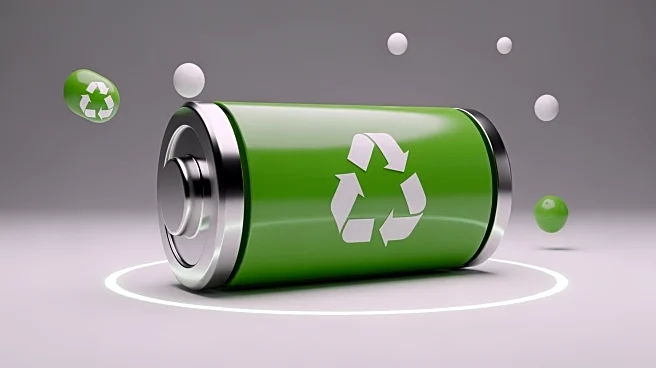What's Happening?
A study published in Nature suggests that implementing a circular economy strategy could reduce carbon emissions from the lithium-ion battery supply chain by up to 35%. The research highlights the significant
emissions generated during the mining of minerals, which account for 38.52% of total emissions, despite contributing only 18.78% to the battery's economic value. The study proposes recycling metals through a circular economy, requiring global cooperation and region-specific regulations, to achieve substantial emission reductions. This approach could lead to regional emission reductions of 39.14% in the U.S., 37.28% in the EU, and 42.35% in China.
Why It's Important?
The findings underscore the importance of global cooperation in reducing the environmental impact of lithium-ion batteries, which are crucial for renewable energy applications like electric vehicles. By addressing the 'value-emission paradox,' where low-revenue supply chain segments produce high emissions, the strategy could enhance sustainability in the battery industry. This has implications for policymakers, manufacturers, and environmental advocates, as it could drive changes in production practices and regulatory frameworks, promoting cleaner technologies and reducing the carbon footprint of energy storage solutions.
What's Next?
The study calls for robust international agreements to ensure equitable benefits from recycling lithium-ion batteries. Stakeholders, including governments and industry leaders, may need to collaborate on developing and implementing policies that support circular economy practices. This could involve investments in recycling infrastructure and technology, as well as incentives for companies to adopt sustainable practices.
Beyond the Headlines
The shift towards a circular economy in the battery industry could trigger broader changes in manufacturing and waste management practices, influencing other sectors reliant on mineral resources. Ethical considerations around resource extraction and recycling, including labor practices and environmental justice, may gain prominence as the industry evolves.









